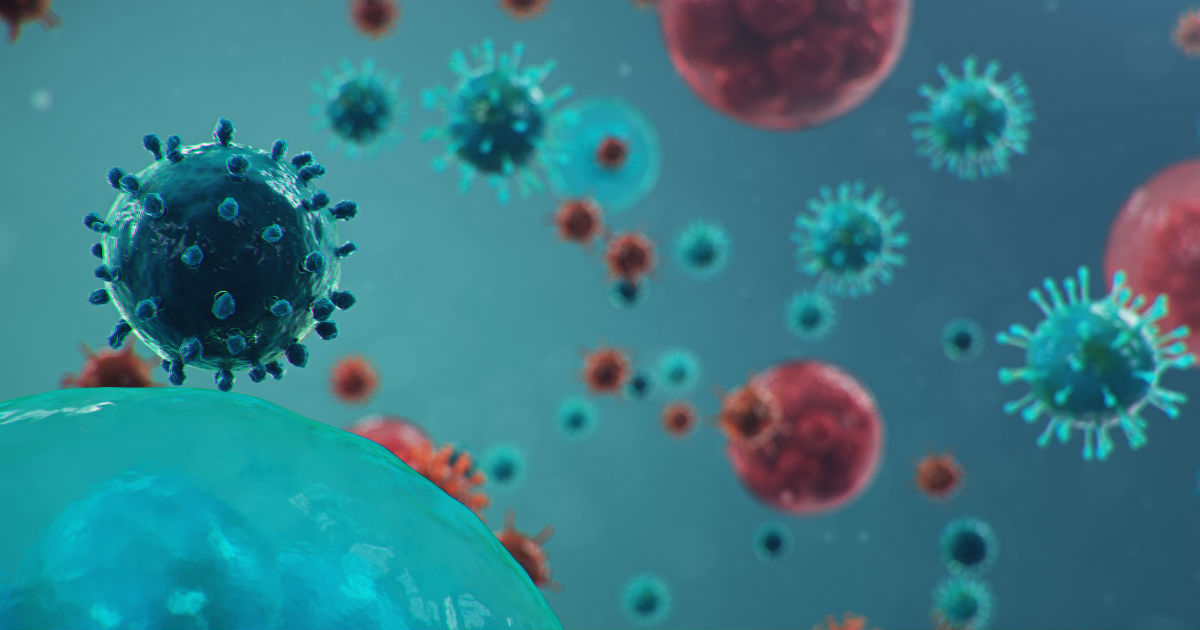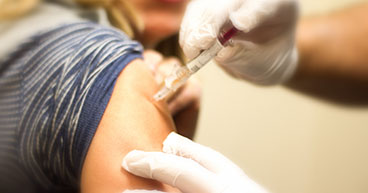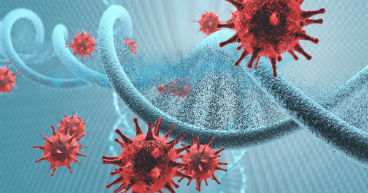
In the age of COVID-19, all cancer patients should be on high alert due to their increased risk of experiencing poorer outcomes if they are infected by the virus. Cancer, and certain cancer treatments, can wreak havoc on the immune system, a side effect that’s especially worrisome during a pandemic.
The findings from a United Kingdom study of cancer patients with COVID-19 indicate that when it comes to this virulent virus, all cancers may not come with the same risks. In fact, patients with blood cancers—leukemia, lymphoma and multiple myeloma-—may be more susceptible to experiencing severe cases of COVID-19, and leukemia patients in particular have more than twice the chance of dying from the virus, according to the U.K. Coronavirus Cancer Monitoring Project (UKCCMP).
Formed in March, when COVID-19 began its rapid spread across the globe, the UKCCMP compared the data of 1,044 cancer patients with COVID-19 to 145,000 cancer patients who didn’t have the virus. After accounting for factors such as age, sex and tumor type, investigators found:
- Patients with blood cancer were at a 57 percent greater risk of experiencing a severe case of COVID-19 compared to patients with other cancer types.
- Blood cancer patients who recently had chemotherapy also had a higher likelihood of dying from COVID-19.
- Patients with leukemia had a “significantly increased case-fatality rate.”
- Patients older than 80 had the highest likelihood of succumbing to the virus.
- Patients with prostate cancer, lung cancer, breast cancer and cancers of the female reproductive system appeared to be at a much lower risk of getting infected or dying from COVID-19.
While admitting their study had “some limitations,” and that patients with some cancers were under-represented in the survey, researchers say their work shows that “not all cancer patients are affected equally” by COVID-19. “This important finding could allow clinicians some ability to risk stratify their patients and make informed decisions on appropriate levels of social isolation and shielding,” they write.
Learn how blood cancers differ.
Blood cancers and the immune system
The findings aren’t surprising, says Pamela Crilley, DO, Chair of the Department of Medical Oncology at Cancer Treatment Centers of America® (CTCA), Philadelphia. It makes sense, she says, that those with blood cancer may be harder hit by COVID-19, since hematologic malignancies cause abnormalities with bone marrow—the spongy tissue inside the bones that makes white and red blood cells and platelets.
White blood cells fight infection, so if they are not functioning properly, there’s a greater likelihood that these patients will be infected by the virus. Some leukemia patients, for instance, may have prolonged periods of neutropenia—an abnormally low count of a type of white blood cells called neutrophils—as well as a disruption in the immune system, which may contribute to poorer outcomes, Dr. Crilley explains.
Still in question is whether chemotherapy and other blood cancer treatments that weaken the immune system provide some further explanation for the UKCCMP study’s results. The study suggests the risk of dying from COVID-19 “appears to be heightened” in blood cancer patients on chemotherapy or those who had chemotherapy treatments within four weeks of infection.
Doctors have found that the hardest-hit COVID-19 patients tend to experience something known as a cytokine storm (or cytostorm for short), which occurs when a hyperactive immune system attacks healthy cells and tissues instead of, or in addition to, fighting the virus.
The Lancet Oncology reports that cytotoxic treatments (chemotherapy and radiation therapy) used to treat blood cancers reduce the number of white blood cells known as lymphocytes, potentially increasing blood cancer patients’ chances of infection. Treatments for solid tumor cancers, however, “have little effect on lymphocyte populations or inflammatory responses,” according to The Lancet Oncology.
How treatments affect our immune cells
Treatments for almost all cancers have the potential to compromise the immune system. For instance, the immune system maybe become exhausted after surgery as it fights to help prevent infection and heal wounds caused by the procedure. Many of the treatments approved for blood cancers may either damage healthy immune cells or directly manipulate immune cells to better attack tumors. Either way, these treatments may deplete an immune system struggling to maintain its strength. For instance:
Chemotherapy drugs are designed to kill fast-growing cancers, but they may also attack fast-growing healthy cells, such as those found in bone marrow, which produces immune cells.
Immunotherapy drugs called checkpoint inhibitors, used to treat some forms of lymphoma, are designed to boost the immune cells, but they may also overstimulate them, causing them to attack healthy cells.
CAR T-cell therapy uses re-engineered immune cells to attack specific cells in treating certain types leukemia or lymphoma, but it may also damage or exhaust B-cells, affecting the body’s ability to produce antibodies.
Stem cell transplants may result in the transplant recipient rejecting donor cells, causing recurrent infections and other symptoms.
Learn how cancer treatments impact the immune system.
Taking precautions
Dr. Crilley cautions blood cancer patients not to allow the UKCCMP study to discourage them from continuing their treatments and other aspects of their cancer care. Instead, she urges them to focus their energy on “being vigilant and making sure those you interact with are doing the same.”
“Be very careful of any symptoms (of the virus) and keep in frequent communication with your care team,” she advises. If you have concerns about how cancer treatments may increase your risk for infection, talk to your oncologist and take extra precautions to protect yourself, including:
- Washing your hands frequently
- Using approved hand sanitizers and disinfectants
- Avoiding large crowds
- Practicing social distancing, if you must go out
- Avoiding touching your eyes, nose or mouth
- Avoiding people who are sick and staying home if you’re sick or have been exposed to someone who is
- Cleaning and disinfecting frequently touched areas and objects
Learn why immune-boosting treatments don't work for all diseases.



